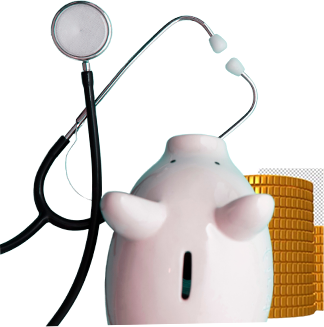PERSONALIZED DIET PLAN FROM
Nutritionist for Diverticulitis

Contact Us
The right diet can be highly influential in reducing inflammation in the intestines. Managing diverticulitis may be one of the hardest challenges a person may face, especially while choosing a diet. The right nutrition is important in symptom control, prevention of flare-ups, and general digestive health. At QUA Nutrition, our experts have been researching diverticulitis, and are devoted to helping patients create diets that incorporate the right nutrients while eliminating foods that may worsen the patient’s condition. Our expert nutritionists and dietitians for diverticulitis will guide you through the complexities of this condition and help you achieve your desired health goals.

Why Work with a Nutritionist for Diverticulitis?
Working with a nutritionist for diverticulitis ensures a personalized diet plan and guidance to manage symptoms, prevent flare-ups, and support digestive health.
Personalized Diet Plans
Nutritionists can develop a personalized diet plan that focuses on your specific needs and helps you manage your diverticulitis symptoms by avoiding certain foods while maintaining a healthy balance. This personalized approach helps improve overall health and manage symptoms.
Understanding Food Triggers
Diverticulitis may be triggered by certain foods, and a dietitian can help determine the types of food that trigger these symptoms and suggest appropriate therapeutic alternatives to aid comfort and digestive health recovery.
Nutritional Balance and Healing
Adequate nutrition is important in optimally dealing with the issues of a particular flare-up. A nutritionist will identify foods that are not only rich in nutrients but enhance gut healing while controlling irritants.
Managing Flare-Ups and Remission
During acute episodes, one’s nutritional requirements become more complicated. A nutritionist for diverticulitis helps you navigate the transition from the high-fiber diet in moderation to a clear liquid diet during flare-ups.
Long-Term Health and Prevention
Proper nutrition can help prevent future flare-ups and complications. Dietary needs during an acute episode differ considerably and are managed at their best when done under guidance.
Key Nutritional Considerations for Diverticulitis
Nutrition plays an important role in managing diverticulitis symptoms and promoting overall gut health. Given below are the key nutritional considerations suggested by our nutritionists for diverticulitis treatment.
Fiber Intake
During flare-ups, a low-fiber diet is recommended to rest the digestive system. In remission, a gradual increase in fiber helps maintain bowel regularity and prevent future episodes.
Hydration
Drinking enough liquid is essential, especially when increasing fiber, to prevent constipation and maintain digestive health.
Probiotics and Gut Health
Probiotics help maintain healthy gut flora, which is beneficial for digestive health and inflammation reduction.
Low-FODMAP Diet
A low-FODMAP diet is beneficial to reduce bloating, gas, and discomfort. A nutritionist can help determine if this is suitable for you.
Avoiding Certain Foods
Foods like nuts, seeds, and popcorn were traditionally thought to exacerbate symptoms, but recent research suggests they may be safe for some people. A diverticulitis nutritionist can help you navigate these choices.
Anti-inflammatory Foods
Incorporating anti-inflammatory foods such as berries, leafy greens, and omega-3-rich fish can help reduce inflammation and support gut health.

Common Diverticulitis Diet Plans
Properly planned Diet program plays an important role in managing diverticulitis. A nutritionist can guide you on the diet plan one should follow. Here are the common diverticulitis diet plans.
Clear Liquid Diet (During Acute Flare-Ups)
Includes water, clear broths, plain gelatin, and clear juices to rest the digestive tract and reduce inflammation.
Low-Fiber Diet (Post-Flare-Up Transition)
Gradual introduction of low-fiber foods like white rice, white bread, cooked fruits without skins, and lean proteins.
High-Fiber Diet (Maintenance Phase)
Once symptoms subside, a high-fibre diet, including whole grains, fruits, and vegetables, helps maintain bowel regularity and prevent future flare-ups.
Low-FODMAP Diet (For Sensitive Individuals)
For those with additional digestive sensitivities, a low-FODMAP diet can reduce bloating and discomfort.
Anti-Inflammatory Diet
Includes foods rich in omega-3s, antioxidants, and anti-inflammatory compounds to support gut health and reduce inflammation.
Recommended Foods for Diverticulitis Management
Now we have a clear idea about the common diet plans, let’s have a look at the foods that we should include in our diets to manage diverticulitis
Clear Liquids – Water, broth, clear juices (during flare-ups).
Low-Fiber Options – White rice, white bread, cooked fruits, eggs, fish, and lean poultry (post-flare-up).
High-Fiber Choices – Whole grains, beans, fruits (without seeds), and vegetables (gradually introduced in remission).
Probiotics – Yogurt with live cultures, kefir, and fermented foods to support gut health.
Anti-Inflammatory Foods – Fatty fish (salmon, mackerel), nuts (if tolerated), leafy greens, and berries.
Hydrating Fluids – Water, herbal teas, and clear broths to maintain hydration and aid digestion.


Role of Nutritionist in Managing Diverticulitis
Personalized Meal Planning
A nutritionist tailors meal plans to your specific needs, ensuring balanced nutrition while avoiding trigger foods.
Symptom Tracking and Management
They help you track symptoms and adjust dietary choices to minimize discomfort and prevent flare-ups.
Education on Safe Foods
A nutritionist educates you on safe food choices during different phases of diverticulitis, reducing anxiety around eating.
Nutritional Support During Flare-Ups
Guidance on transitioning from a clear liquid to a low-fiber diet during flare-ups, ensuring adequate nutrition.
Probiotic and Supplement Guidance
They recommend suitable probiotics and supplements to support gut health and overall well-being.
Ongoing Support and Monitoring
Regular consultations provide ongoing support, helping you adapt to dietary needs as symptoms change.
Why Choose QUA Nutrition for Diverticulitis Management?
At QUA Nutrition, we understand the complexities of managing diverticulitis and the importance of a tailored dietary approach. Our team of expert dieticians and nutritionists specializes in diverticulitis and is dedicated to helping you manage your symptoms effectively. We provide personalized diet plans that cater to your unique needs, preferences, and lifestyle, ensuring balanced nutrition while avoiding trigger foods. Our evidence-based nutritional guidance is backed by the latest scientific research, giving you confidence in safe and effective dietary management.
We offer comprehensive support that goes beyond meal planning. From symptom tracking to ongoing consultations, we are committed to guiding you through every step of your journey. Our proven success with clients dealing with diverticulitis reflects our expertise and dedication. Additionally, by choosing QUA Nutrition, you gain access to exclusive resources, including customized recipes, educational materials, and expert advice tailored to improve your digestive health. Our holistic approach ensures you receive all the support you need to live a symptom-free life with diverticulitis.
Contact us today to get an appointment with Qua’s nutritionist for managing diverticulitis.

Our Success Stories
Q: What is diverticulitis, and how does diet affect it?
A: Diverticulitis is the inflammation of digestive pouches, and diet helps manage symptoms.
Q: Can a nutritionist cure diverticulitis?
A: No, but they can help manage symptoms and prevent flare-ups.
Q: What foods should I avoid with diverticulitis?
A: Avoid high-insoluble-fiber foods, nuts, seeds, and processed foods.
Q: How long does it take to see improvements with dietary changes?
A: Improvements vary but can be seen in days to weeks.
Q: Why choose QUA Nutrition for managing diverticulitis?
A: QUA provides personalized plans, expert guidance, and comprehensive support.


